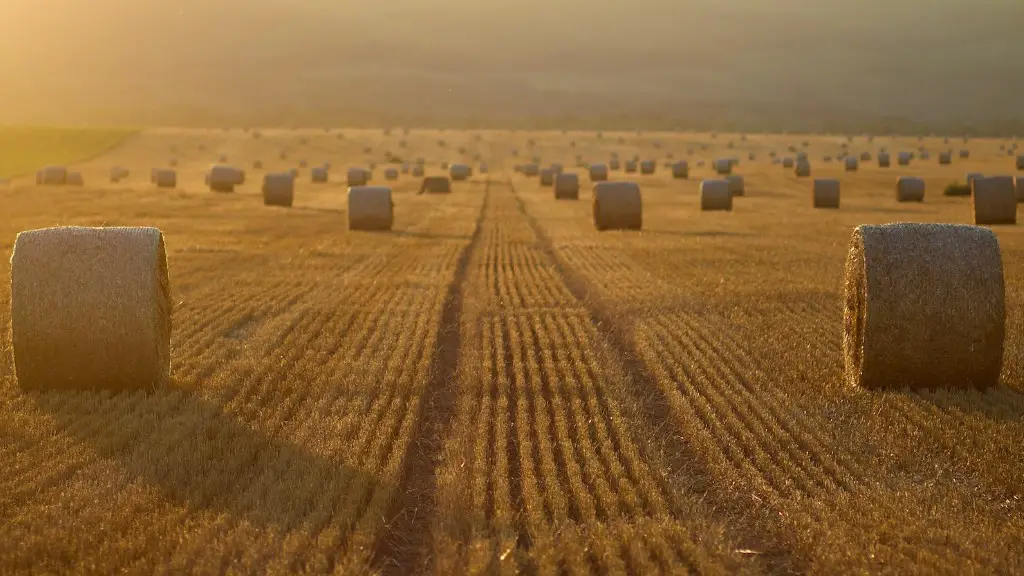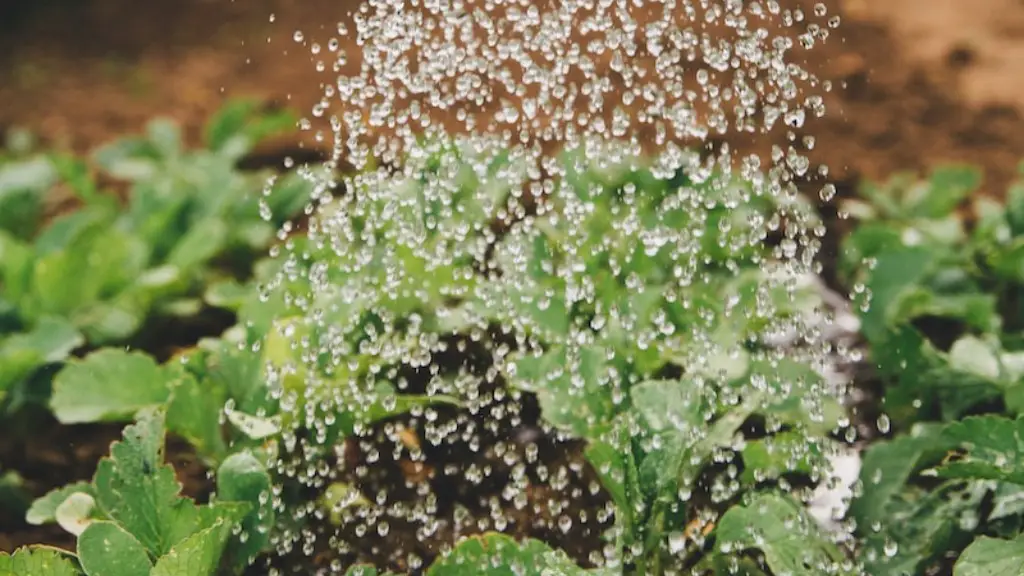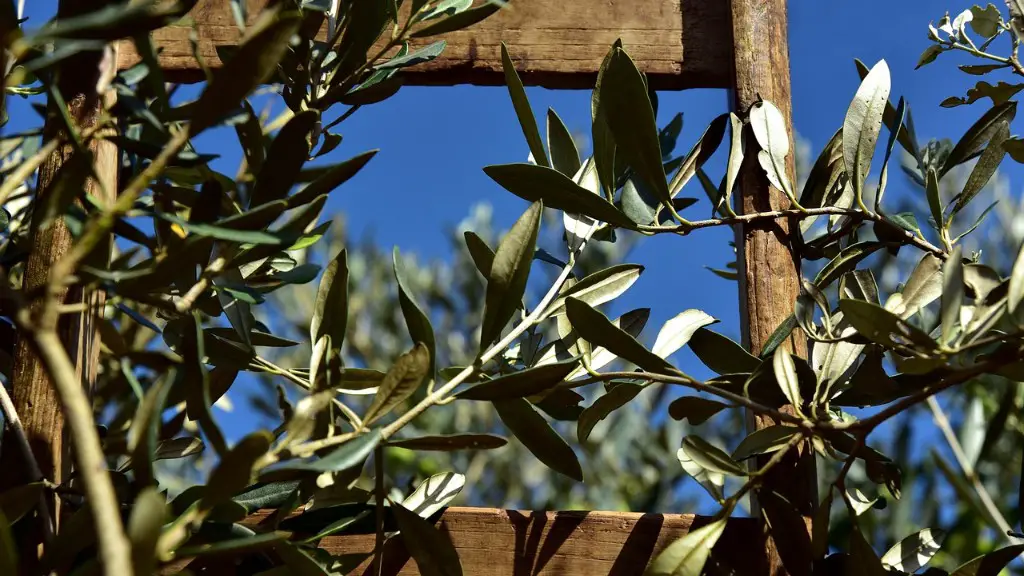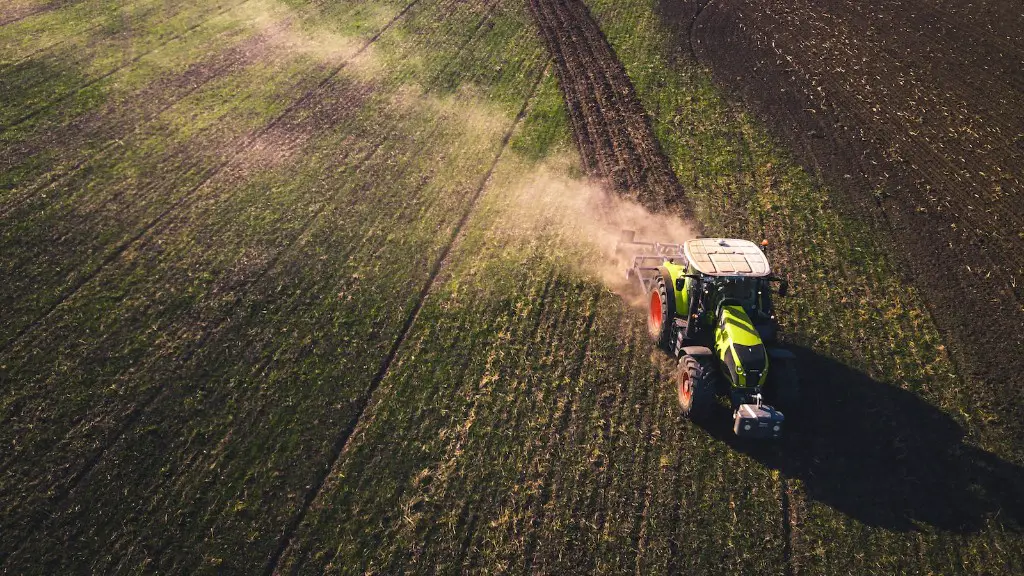Agriculture runoff is a type of water pollution that occurs when chemicals and other pollutants from farms are carried away by rain or irrigation and contaminate water sources such as rivers, lakes, and groundwater. These pollutants can come from a variety of sources, including animal waste, crop residues, pesticides, and fertilizers. Runoff from agricultural land is a leading source of water pollution in the United States.
Agricultural runoff is water that runs off from farmland after rain or irrigation and can contain pesticides, fertilizers, and other pollutants.
What are examples of agriculture runoff?
Agricultural runoff can cause a variety of problems for the environment. Here are six examples:
1. Sediment: Soil that is washed away from fields can clog waterways and damage aquatic habitats.
2. Nutrients: Nitrogen, phosphorus and potassium from chemical fertilizers and manure can cause algae blooms and water pollution.
3. Pathogens: Bacteria, viruses and other harmful organics from sources such as animal waste can contaminate water supplies and make people sick.
4. Pesticides & Herbicides: These chemicals can pollute waterways and harm aquatic life.
5. Metals: Salts and other metals can build up in soils and contaminate water supplies.
6. Sediment: Soil that is washed away from fields can clog waterways and damage aquatic habitats.
Agricultural runoff can be a major source of pollution for lakes, rivers, and marine beaches. It can also contaminate groundwater. Landowners can prevent runoff by using best practices that keep soil and other pollution out of streams and rivers.
How is agricultural runoff bad for the environment
Pesticide runoff is a serious problem that can impact aquatic life, fish-eating wildlife, and drinking water supplies. Pollutants from agricultural operations can also enter groundwater and degrade sources of drinking water. Human health impacts might occur as a result. It is important to take steps to prevent pesticide runoff and to monitor water quality to protect human health and the environment.
This is a really important finding because it shows that agricultural pollution is having a big impact on ocean ecosystems. The scientists say that the algae blooms are causing dead zones, which is a huge problem. This is something that needs to be addressed urgently.
Where does agricultural runoff happen?
Organic matter loading from agricultural runoff and wastewater is a common and serious problem. Organic matter can degrade water quality, harm aquatic ecosystems, and cause problems for drinking water treatment facilities. Agricultural runoff and wastewater must be properly managed to protect water resources.
Runoff from nonpoint sources is a huge problem for the environment. Lawn fertilizer, car exhaust, and even spilled gasoline from a car can all contribute to runoff. Farms are a huge nonpoint source of runoff, as rainwater and irrigation can drain fertilizers and pesticides into bodies of water. Impervious surfaces, or surfaces that can’t absorb water, also contribute to runoff.
How can we control agricultural runoff?
Adding a conservation buffer to your field can help prevent runoff, especially if the field borders a body of water. By planting trees, shrubs, and grasses along the edges of the field, you can create a barrier that will help keep water in the field and reduce the amount of erosion.
There are a few things that can accelerate soil and bank erosion, including surface runoff, discharges from oxidation ponds, and stock in streams. Subsurface drains can also play a role in erosion if they are not properly installed or maintained.
How can we reduce agricultural water waste
Conserving water is important for farmers in order to be sustainable and protect their crops. There are a number of ways farmers can conserve water, including improving irrigation systems, using cover crops, and managing residue and tillage. By taking these steps, farmers can improve their water usage and help conserve this important natural resource.
Agricultural runoff is a major source of water pollution, as it can contain harmful nutrients like nitrogen and phosphorus. These nutrients can cause oxygen-starved “dead zones” in water, which can be damaging to both human and ecological health.
Why is runoff a problem?
Uncontrolled stormwater runoff can cause a number of problems for both humans and the environment. These problems include flooding, damage to property, eroded streambanks, and widened stream channels. All of these problems can have a cumulative impact that can be significant.
Nitrous oxide (N2O) is a potent greenhouse gas, with a warming potential of approximately 300 times that of carbon dioxide (CO2). From fertilizer runoff in farm fields, an increasing load of nitrogen is washing into rivers and streams. In addition to causing eutrophication of aquatic systems, this excess nitrogen is also contributing to the atmospheric load of N2O. Thus, reducing fertilizer runoff from farm fields is an important strategy for mitigating climate change.
What animals are affected by agricultural runoff
The downstream impacts of nitrogen and phosphorus can be bad for human health, sportfish, waterfowl, and even your Labrador retriever. While the nutrients themselves can be toxic, the effects of added nitrogen and phosphorus can ripple out with devastating effects.
Agricultural runoff occurs when water from rain or irrigation carries fertilizers, pesticides, and other pollutants from farms into waterways. This can contaminate water supplies and negatively impact aquatic ecosystems. Runoff can also cause problems for sewage treatment facilities and contribute to nutrient pollution in lakes and coastal waters.
Wetlands can help reduce agricultural runoff by filtering out pollutants and storing water. Planting buffers of native vegetation around farm fields can also intercept and slow the flow of runoff. Improved irrigation practices, such as using drip irrigation, can help reduce the amount of water that runs off fields.
What is runoff and why is it important?
Precipitation is one of the most important water sources for replenishing Earth’s groundwater supply. Most of the runoff from precipitation flows downhill, which is important for keeping rivers and lakes full of water. Runoff also changes the landscape by the action of erosion.
Runoff is an important process that helps to regulate water levels and ensure that water is available for plants and animals. Without runoff, water would quickly become stagnant and unusable.
Final Words
Agricultural runoff is water that flows from agricultural land into rivers, lakes, and wetlands. It can contain a variety of pollutants, including pesticides, herbicides, and fertilizers. Agricultural runoff can adversely affect water quality and habitats.
Agricultural runoff is one of the leading causes of water pollution in the United States. It occurs when chemicals from fertilizers, pesticides, and other farm products are washed into lakes, rivers, and streams. These pollutants can harm fish, wildlife, and people.





